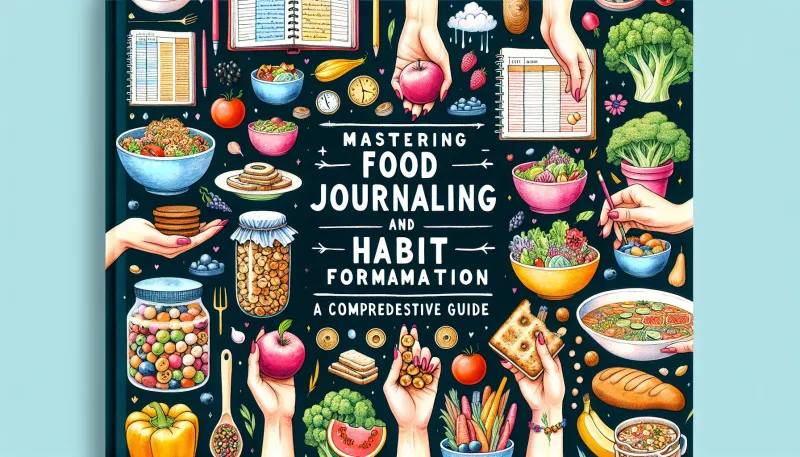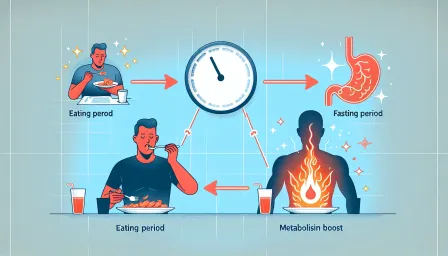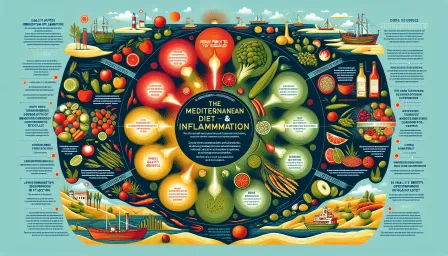Mastering Food Journaling and Habit Formation: A Comprehensive Guide

Learn how food journaling and habit formation can improve your health and wellness. This comprehensive guide offers expert advice and actionable steps.
In an era where health and wellness take center stage, understanding the intricate dynamics of food journaling and habit formation can significantly influence positive lifestyle changes. This comprehensive guide dives deep into methods and practices that can help you harness the power of these tools for better health and well-being.
Introduction to Food Journaling and Habit Formation
Food journaling involves documenting what you eat and drink throughout the day. It’s a simple yet powerful technique that provides insights into your eating patterns, helping you make informed dietary choices. Habit formation, on the other hand, is the process by which behaviors become automatic through repetition.
The Benefits of Food Journaling
Increased Awareness
One of the primary benefits of food journaling is heightened awareness of your eating habits. By taking note of everything you consume, you become more conscious of portion sizes, meal timings, and nutritional content.
Identifying Patterns
Food journaling helps to identify patterns in your diet. For instance, you may realize that you tend to consume more junk food during stressful times. Recognizing such patterns is the first step in making necessary adjustments.
Tracking Progress
Maintaining a food journal allows you to monitor your progress towards specific health goals, such as losing weight or managing a medical condition. It serves as a tangible record that reflects your commitment and improvements over time.
Better Planning
With the information gathered from food journaling, you can plan your meals more effectively. This forward-thinking approach can lead to healthier choices and a more balanced diet.
How to Start a Food Journal
Choosing a Medium
Decide whether you prefer a physical notebook, a mobile app, or a digital spreadsheet. Each medium has its advantages, so choose one that you find convenient and easy to maintain.
What to Include
When you start a food journal, include details such as the type and quantity of food consumed, meal times, emotional state, and physical activity. The more comprehensive your entries, the more insights you’ll gain.
Consistency is Key
Consistency is crucial in food journaling. Make it a habit to log your meals daily. Set reminders if necessary, and review your journal regularly to track progress and identify areas for improvement.
Habit Formation Strategies
The Science of Habits
According to research, habits are formed through a loop of cue, routine, and reward. Recognizing this loop can help you develop strategies to form good habits and break bad ones.
Start Small
When forming new habits, start with small, manageable changes. Incremental adjustments are easier to maintain and less overwhelming, leading to more sustainable long-term habits.
Stay Consistent
Consistency is essential in habit formation. Engage in the desired behavior regularly. The repeated action reinforces the habit loop, making the behavior more automatic over time.
Monitor and Adjust
Keep track of your progress and be ready to make adjustments as needed. If a particular strategy isn’t working, don’t hesitate to tweak it or try a new approach.
Combining Food Journaling and Habit Formation
Integrating food journaling with habit formation creates a powerful synergy, enhancing your ability to maintain a healthy lifestyle. Here’s how to effectively combine these two practices:
Set Clear Goals
Establish clear, achievable goals for your food journaling and habit formation. Whether it’s eating more vegetables, reducing sugar intake, or drinking more water, having specific targets helps maintain focus and measure progress.
Create a Routine
Incorporate your food journaling into a daily routine. Make it a part of your morning or evening ritual, ensuring it becomes a consistent practice.
Link New Habits with Existing Ones
Attaching new habits to existing ones can facilitate the habit formation process. For example, if you already have a habit of preparing your morning coffee, use that time to record your breakfast in your food journal.
Celebrate Small Wins
Celebrate your achievements, no matter how small. Recognizing and rewarding your progress reinforces positive behavior and keeps you motivated.
Overcoming Common Challenges
Time Management
Finding time to journal can be challenging. However, consistency doesn’t require a significant time investment. Even a few minutes each day can make a big difference. Use downtime, such as waiting for public transport, to update your journal.
Staying Motivated
Maintaining motivation can be challenging. Set reminders, partner with a friend, or join a community group for support and accountability. Revisiting your goals regularly can also keep you inspired.
Dealing with Setbacks
Setbacks are a natural part of the process. Instead of feeling discouraged, view them as learning opportunities. Analyze what went wrong, adjust your strategy, and continue your journey with renewed focus.
Conclusion
Food journaling and habit formation, when practiced together, can be transformative tools for achieving and maintaining a healthier lifestyle. By increasing awareness, identifying patterns, and building consistent routines, you can gain valuable insights and make meaningful changes. Remember, the key to success lies in starting small, staying consistent, and celebrating your progress. As you master these practices, you'll be well on your way to a healthier and more fulfilling life.



























